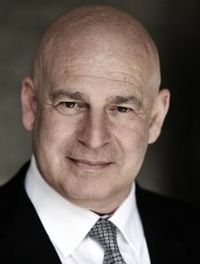Chalk & (very expensive) Cheese – Steven Falk
December 17, 2014
Nothing more exemplifies the difference in business strategy between Manchester’s two Premiership football clubs than City’s investment in satellite clubs based in New York and Melbourne.
The desire to create a global franchise by expanding the reach of the City brand to local markets is a positive strategic approach to countering United’s global dominance over the past two decades without having to wait for the trophy count to do the job organically.
Positive that is if your business in underwritten by a sovereign wealth fund with unlimited access to capital and the ultimate objective of presenting a favourable public image of what is otherwise a rather unprepossessing nation state remarkable only for its great wealth and some ultra conservative (some would say medieval-style) social regulation.
City’s owner, Sheikh Mansour bin Zayed al-Nahyan is not only the deputy Prime Minister of the United Arab Emirates but is also a senior member of the autocratic ruling family of Abu Dhabi.
It is no surprise therefore that City’s four key sponsors (Etihad Airlines, Etisalat Telecoms, Aabar Investments and Abu Dhabi Tourism Authority are all state owned).
Four miles across town, United’s approach to the business of football is very different. Under the control of the Glazer family, the club is run both as a vehicle to service the debt incurred from their leveraged acquisition and as an appreciating asset to be sold at some point in the future when it will generate a substantial capital gain for its owners.
Investment in both the team and the brand is considered not in terms of its PR impact but solely for its effect on the bottom line.
Fortunately for the fans, this outcome is determined mainly by the team’s success in winning trophies, so in this respect at least, theirs and the owners objectives are aligned.
So while the operating models for both clubs is primarily directed at success on the pitch without which neither strategic ambition can be achieved, the rationale underpinning the activity of both clubs could not be more diverse.
Nowhere is this dichotomy seem more clearly than in their respective approach to investment in women’s teams.
While women in Abu Dhabi may be required to cover themselves in public and face the death penalty should they enjoy pre-marital relations or be accused of adultery, City have invested heavily in their successful Women’s Super League team and see it as a useful PR vehicle to promote the City brand.
In contrast, United chooses not to compete at the highest level in women’s football on the basis that such investment is money diverted to the detriment the first team.
In the United business model it only makes sense to invest in assets that contribute to first team success.
Hence a strong Academy is generously funded, but projects calculated only to generate goodwill are not.
So which then is the “right” approach and which will succeed in the long term?
The simple answer is that both are right and the likelihood is that both will succeed in terms of their respective owners’ ambitions.
Each club pursues a rigorous approach best suited to meet its own strategic objectives.
City belies the authoritarian character of its owners’ homeland by portraying itself as a beneficent, modern and inclusive global organisation while United employs an aggressive sales machine to hoover up sponsorship deals from any brand with pockets deep enough to feed the club’s insatiable appetite for cash.
As a celebrated and dictatorial prince of football once commented, “Football, bloody hell.”
Steven Falk is director of Star Sports Marketing a consultancy providing advice on sponsorship activation, CRM, brand and affinity marketing. You can follow him on Twitter @steven_falk


